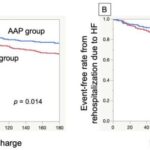After gaining experience as a registered nurse (RN), many professionals consider advancing their careers to become nurse practitioners (NPs). In Wisconsin, NPs enjoy a high degree of autonomy, often practicing independently and specializing in diverse fields. If you’re an RN in Wisconsin looking to specialize in critical and urgent care, Acute Care Nurse Practitioner Programs In Wisconsin offer a direct route to becoming an expert in this high-demand area of healthcare. This guide will explore the pathways to becoming an acute care NP in Wisconsin, highlighting program options, specializations, and what to expect in this rewarding career.
What is an Acute Care Nurse Practitioner (ACNP)?
Acute Care Nurse Practitioners (ACNPs) are advanced practice registered nurses (APRNs) who specialize in managing complex and critical conditions in patients across the lifespan, or in specific populations like adults or children. Unlike primary care NPs who focus on preventative care and long-term health management, ACNPs are experts in diagnosing and managing acute illnesses and injuries. They often work in settings such as:
- Hospital intensive care units (ICUs)
- Emergency departments (EDs)
- Trauma centers
- Specialty clinics dealing with acute illnesses (e.g., cardiology, pulmonology)
ACNPs play a crucial role in providing comprehensive care, including:
- Diagnosing acute and critical conditions
- Ordering and interpreting diagnostic tests
- Developing and implementing treatment plans
- Performing procedures (depending on specialty and setting)
- Managing complex medical devices and technologies
- Coordinating care with other healthcare professionals
- Providing education and support to patients and families
Alt text: An acute care nurse practitioner attentively reviews a patient’s medical chart in a bustling hospital environment.
Why Choose an Acute Care NP Program in Wisconsin?
Wisconsin is an excellent state to pursue a career as an Acute Care Nurse Practitioner for several compelling reasons:
- Full Practice Authority: Wisconsin grants NPs full practice authority, meaning ACNPs can practice independently, diagnose, treat, and prescribe medications without mandatory physician supervision. This autonomy allows for greater professional satisfaction and the ability to fully utilize your advanced skills.
- High Demand: The demand for specialized healthcare providers, including ACNPs, is consistently high across Wisconsin. Hospitals and acute care facilities rely on ACNPs to provide expert care in critical settings.
- Competitive Salary and Benefits: ACNPs in Wisconsin earn competitive salaries and benefits, reflecting their advanced education and specialized skills.
- Diverse Program Options: Wisconsin offers a range of accredited acute care nurse practitioner programs at various universities, catering to different educational backgrounds and career goals.
- Strong Nursing Community: Wisconsin has a robust and supportive nursing community, with professional organizations like the Wisconsin Nurses Association (WNA) offering resources and advocacy for NPs.
Types of Acute Care Nurse Practitioner Programs in Wisconsin
Aspiring ACNPs in Wisconsin can choose from several educational pathways, depending on their current nursing qualifications:
MSN-ACNP Programs
For RNs holding a Bachelor of Science in Nursing (BSN), a Master of Science in Nursing (MSN) program with an acute care specialization is the most common route. These programs typically take two to three years to complete full-time and offer comprehensive training in advanced pathophysiology, pharmacology, and clinical management of acute conditions. Many MSN-ACNP programs in Wisconsin are available online or in hybrid formats, offering flexibility for working RNs.
Post-Master’s ACNP Certificate Programs
For nurses who already have an MSN degree in another specialization (e.g., Family Nurse Practitioner, Adult-Gerontology Primary Care NP), a Post-Master’s Certificate program in Acute Care is an efficient way to gain specialized knowledge and skills. These certificate programs are typically shorter, lasting one to two years, and focus specifically on acute care competencies.
DNP-ACNP Programs
A Doctor of Nursing Practice (DNP) program with an acute care focus represents the highest level of education for nurse practitioners. DNP programs emphasize leadership, systems-level thinking, and evidence-based practice, in addition to advanced clinical skills. While a DNP is not always required for entry-level ACNP practice, it can enhance career advancement opportunities and prepare graduates for leadership roles in acute care settings. DNP-ACNP programs in Wisconsin are available for both BSN-prepared and MSN-prepared nurses.
Alt text: Diverse group of nursing students actively engaged in a classroom discussion during an acute care nurse practitioner program in Wisconsin.
Curriculum and Clinical Focus of Acute Care NP Programs
Acute care nurse practitioner programs in Wisconsin are designed to provide rigorous academic and clinical training. The curriculum typically includes:
- Advanced Pathophysiology: In-depth study of disease processes and their acute manifestations.
- Advanced Pharmacology: Focus on medications used in acute and critical care, including pharmacokinetics and pharmacodynamics.
- Advanced Health Assessment: Specialized techniques for assessing patients with acute and critical illnesses.
- Acute and Critical Care Management: Comprehensive coursework and clinical experiences in managing a wide range of acute conditions, such as respiratory failure, sepsis, cardiac emergencies, and trauma.
- Diagnostic Reasoning and Clinical Decision-Making: Developing advanced skills in interpreting diagnostic data and making complex clinical judgments in fast-paced acute care settings.
- Procedures and Technical Skills: Training in essential procedures commonly performed by ACNPs, such as intubation, central line placement, and ventilator management (depending on program and state regulations).
- Leadership and Interprofessional Collaboration: Preparing graduates to lead within healthcare teams and effectively collaborate with physicians, nurses, and other specialists.
Clinical rotations are a crucial component of ACNP programs. Students gain hands-on experience in various acute care settings under the supervision of experienced ACNP preceptors and physicians. These clinical experiences allow students to apply their knowledge, develop clinical skills, and build confidence in managing acutely ill patients.
Admission Requirements for Acute Care NP Programs
While specific admission requirements may vary among universities, general prerequisites for acute care nurse practitioner programs in Wisconsin typically include:
- Bachelor of Science in Nursing (BSN) degree from an accredited program (for MSN and DNP entry). RNs with ADN or ASN may need to complete an RN-to-MSN bridge program first.
- Active and unencumbered Registered Nurse (RN) license in Wisconsin or eligibility for licensure.
- Minimum GPA: Often a GPA of 3.0 or higher on a 4.0 scale.
- Prerequisite coursework: May include courses in statistics, research, or health assessment.
- Personal statement or essay: Outlining career goals and reasons for pursuing an ACNP specialization.
- Letters of recommendation: From academic and professional references.
- Resume or Curriculum Vitae (CV): Highlighting relevant nursing experience.
Wisconsin Licensing and Certification for Acute Care NPs
To practice as an Acute Care Nurse Practitioner in Wisconsin, you must:
- Graduate from an accredited acute care nurse practitioner program (MSN, DNP, or Post-Master’s certificate).
- Hold an active Wisconsin RN license.
- Obtain national certification as an Acute Care Nurse Practitioner from a recognized certifying body. The most common certifications for ACNPs are offered by the American Nurses Credentialing Center (ANCC) and the Pediatric Nursing Certification Board (PNCB) (for Pediatric Acute Care NPs).
- Apply for APRN licensure from the Wisconsin Department of Safety and Professional Services (DSPS) as an Advanced Practice Nurse Prescriber.
Maintaining certification and licensure requires ongoing continuing education and renewal processes.
List of NP Programs in Wisconsin (Including Potential Acute Care Focus)
While the original article lists general NP programs, identifying programs with a specific “Acute Care” focus requires further investigation of each university’s offerings. Reviewing university websites and program descriptions is essential to confirm ACNP specializations.
Based on the original list, and further research, some Wisconsin universities that may offer acute care nurse practitioner programs or related specializations include:
-
University of Wisconsin-Eau Claire: (MSN, DNP programs – investigate specializations)
- MSN Programs
- DNP Programs
- 105 Garfield AveEau Claire, WI 54701(715) 836-4636
-
Marian University (Fond du Lac): (MSN Programs – investigate specializations)
- MSN Programs
- 45 S National AveFond du Lac, WI 54935(920) 923-7600
-
Bellin College (Green Bay): (MSN, Graduate Certificate Programs – investigate specializations)
- MSN Programs
- Graduate Certificate Programs
- 3201 Eaton RdGreen Bay, WI 54311(920) 433-6699
-
University of Wisconsin-Madison: (Graduate Certificate Programs – may have relevant post-master’s certificates)
- Graduate Certificate Programs
- 702 West Johnson Street. Suite 1101Madison, WI 53715(608) 263-2400
-
Concordia University Wisconsin (Mequon): (MSN, Graduate Certificate Programs – investigate specializations)
- MSN Programs
- Graduate Certificate Programs
- 12800 N Lake Shore DriveMequon, WI 53097(262) 243-5700
- Concordia Wisconsin Campus: (Graduate Certificate Programs – may have relevant post-master’s certificates)
- Graduate Certificate Programs
- 12800 N Lake Shore DriveMequon, WI 53097(262) 243-5700
-
Alverno College (Milwaukee): (MSN Programs – may have Adult-Gerontology Acute Care NP)
- MSN Programs
- 3400 S 43rd StMilwaukee, WI 53234(414) 382-6000
-
Marquette University (Milwaukee): (DNP, MSN, Graduate Certificate Programs – likely to have Acute Care NP options)
- DNP Programs
- MSN Programs
- Graduate Certificate Programs
- 1250 W Wisconsin AveMilwaukee, WI 53233(800) 222-6544
-
University of Wisconsin-Milwaukee: (Graduate Certificate, DNP Programs – may have relevant post-master’s and DNP specializations)
- Graduate Certificate Programs
- DNP Programs
- 2442 E. Kenwood Blvd.Milwaukee, WI 53211(414) 229-1122
-
University of Wisconsin-Oshkosh: (DNP Programs – investigate specializations)
- DNP Programs
- 800 Algoma BlvdOshkosh, WI 54901(920) 424-1234
It is crucial to visit the websites of these universities and directly contact their nursing departments to confirm if they offer Acute Care Nurse Practitioner specializations within their MSN, DNP, or Post-Master’s Certificate programs. Program offerings and specializations can change, so direct verification is always recommended.
Conclusion: Your Future as an Acute Care NP in Wisconsin
Choosing to specialize as an Acute Care Nurse Practitioner in Wisconsin is a rewarding career path for ambitious and dedicated RNs. With full practice authority, high demand, and diverse educational options, Wisconsin provides an excellent environment to pursue this advanced nursing role. By enrolling in an accredited acute care nurse practitioner program in Wisconsin, you can gain the specialized knowledge and skills to excel in critical and acute care settings, making a significant impact on the lives of patients and their families during their most vulnerable times. Take the next step in your nursing career and explore the acute care nurse practitioner programs in Wisconsin that align with your aspirations.


